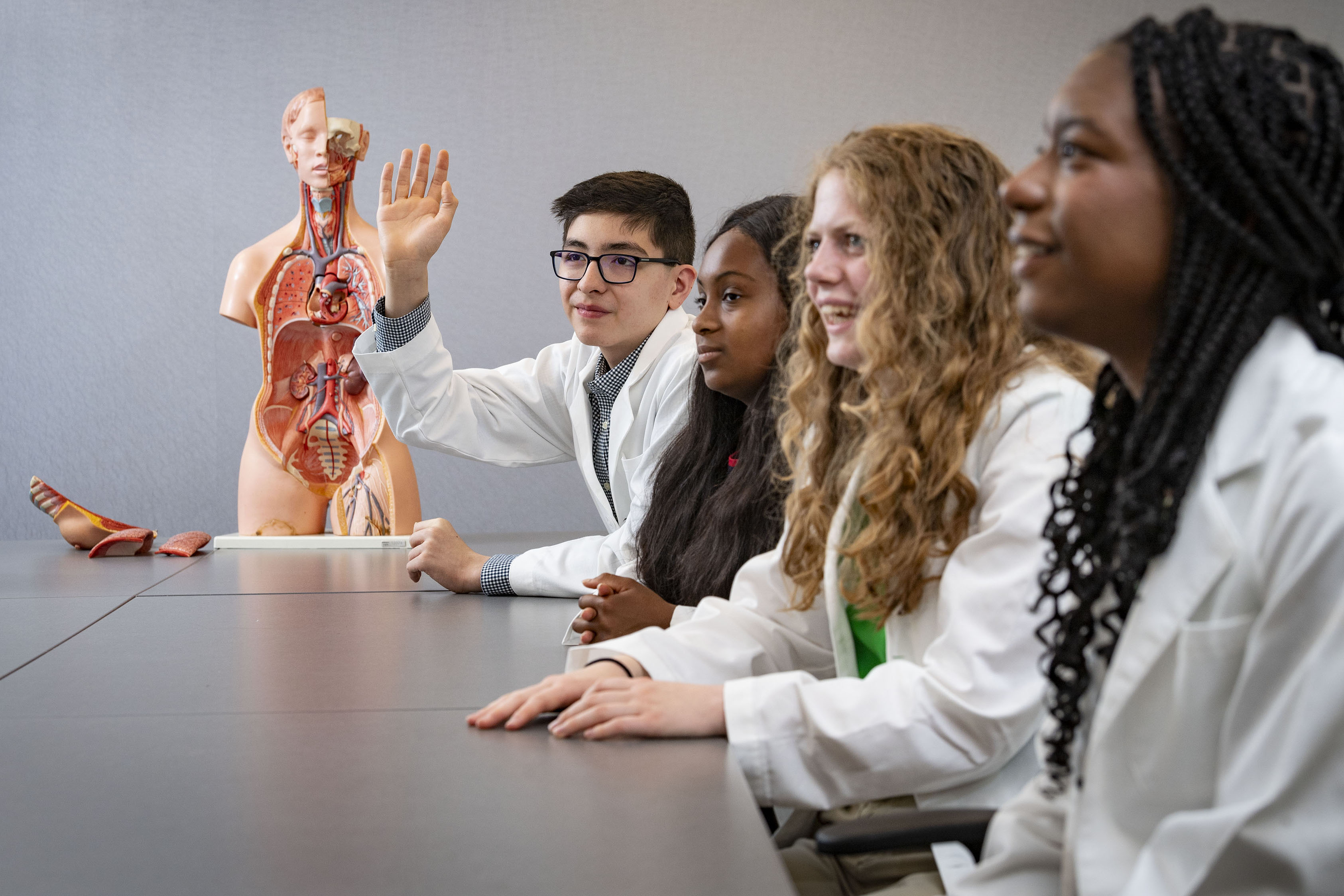
Dig Deeper Into Health Care Majors
At Wright State University, we’re educating the next generation of nurses, biochemists, and mental health counselors. We understand health care is about more than just medicine. Here, you’ll get hands-on experience inside and outside the classroom, so you can start building your resume and reputation before you graduate.
There’s a reason so many medical professionals in the area are Wright State graduates. We train you to work harder, look closer, and think bigger, so you can go further than you ever thought possible—and then keep going.
Public Health
Bring your passion for equity to the world of health care. Public health brings together key topics from sociology, women, gender and sexuality studies, and African American studies. If you're interested in the social sciences, health promotion, education, and advocacy, you’re a perfect candidate for our B.A. in Public Health. If you're more interested in the population health sciences of epidemiology, environmental health, emergency preparedness, and medicine, you belong in our B.S. in Public Health program. Whichever path you choose, it starts right here.
Social Work
Make a difference from day one. With a degree in social work, you can put your passion for social justice to work. You'll master the skills to support families and communities. Become a Licensed Social Worker (LSW) or become a child welfare worker through the University Partnership Program (UPP) and earn a significant workforce bonus.
Health and Exercise Sciences
Help people become the healthiest versions of themselves. With a bachelor's degree in health and physical education or sports science, you can leverage your passion for fitness and exercise to guide others on their health journeys.
Medical Laboratory Sciences
Your lab skills can save lives. You'll learn to provide the accurate lab results physicians and practitioners need to diagnose and treat patients. You'll become an essential member of any health care team. And with the Bachelor of Science degree, you'll be eligible to take the American Society for Clinical Pathology national certification examination.

Medical Scholars Program
Our Medical Scholars program can help you secure an early interview at the Wright State Boonshoft School of Medicine. You'll participate in cutting-edge undergraduate research, collaborate with faculty mentors, and explore careers in medicine--all before most students decide on a major.

Horizons in Medicine Program
Take your passion for health care further in the Horizons in Medicine program. In this month-long summer program designed for high school juniors and seniors, you’ll work alongside medical students and physicians to master new skills and discover your talents. By the time you start college, you'll already have practical experience in multiple health care fields.

Center for Health Professions
Strengthen your skills and become a competitive candidate for future employers, or the graduate program of your choice. The Center for Health Professions will help you choose courses, connect with mentors, and discover opportunities to take you further. We’re here to help you navigate the health care path you choose.
Explore Wright State

About Our Region
The birthplace of aviation is at the crossroads of innovation.

Colleges and School
Six colleges and a medical school collaborate to spark innovation.

Facilities
32 academic buildings on 730 acres across two campuses.

